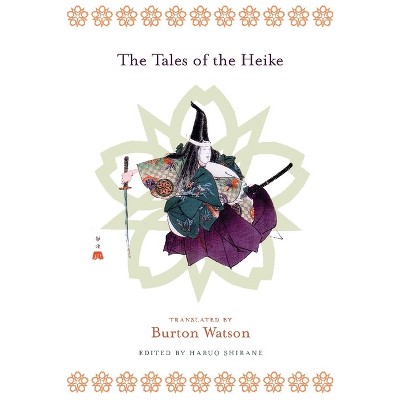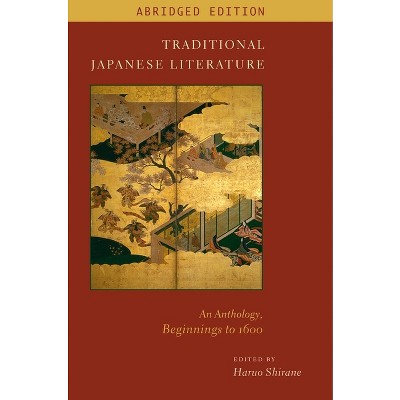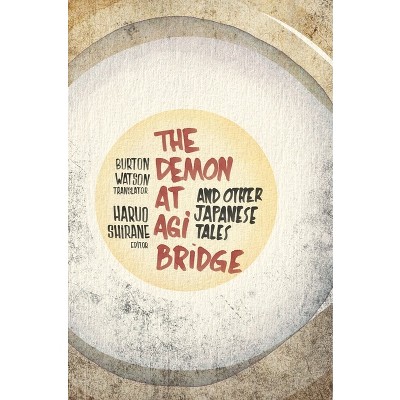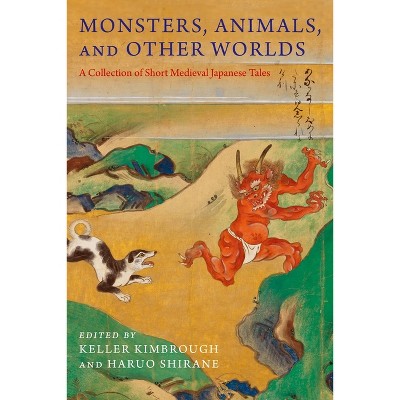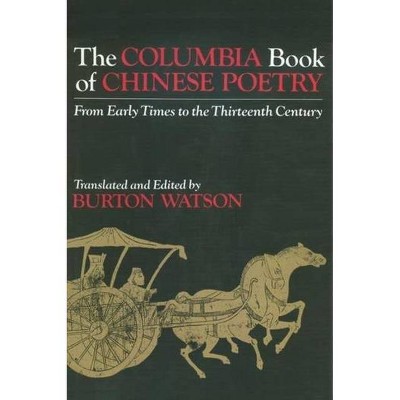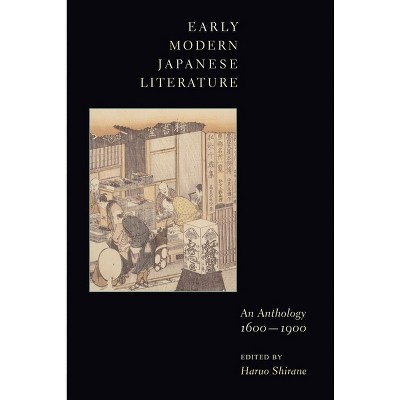The Tales of the Heike - (Translations from the Asian Classics) Abridged by Burton Watson & Haruo Shirane (Hardcover)

About this item
Highlights
- The Tales of the Heike is one of the most influential works in Japanese literature and culture, remaining even today a crucial source for fiction, drama, and popular media.
- About the Author: Burton Watson has taught Chinese and Japanese literature at Columbia, Stanford, and Kyoto Universities.
- 232 Pages
- Fiction + Literature Genres, Classics
- Series Name: Translations from the Asian Classics
Description
About the Book
Originally written in the mid-thirteenth century, The Tales of the Heike chronicles the epic Genpei war, a civil conflict that marked the end of the power of the Heike clan and changed the course of Japanese history. Featuring a vivid cast of characters, the book depicts the emerging world of the medieval samurai and recounts in absorbing detail the chaos of the battlefield, the intrigue of the imperial court, and the gradual loss of courtly tradition. This new, abridged translation presents the work's most gripping episodes and includes woodblock illustrations, a glossary of characters, and an extended bibliography.
Book Synopsis
The Tales of the Heike is one of the most influential works in Japanese literature and culture, remaining even today a crucial source for fiction, drama, and popular media. Originally written in the mid-thirteenth century, it features a cast of vivid characters and chronicles the epic Genpei war, a civil conflict that marked the end of the power of the Heike and changed the course of Japanese history. The Tales of the Heike focuses on the lives of both the samurai warriors who fought for two powerful twelfth-century Japanese clans-the Heike (Taira) and the Genji (Minamoto)-and the women with whom they were intimately connected.
The Tales of the Heike provides a dramatic window onto the emerging world of the medieval samurai and recounts in absorbing detail the chaos of the battlefield, the intrigue of the imperial court, and the gradual loss of a courtly tradition. The book is also highly religious and Buddhist in its orientation, taking up such issues as impermanence, karmic retribution, attachment, and renunciation, which dominated the Japanese imagination in the medieval period.
In this new, abridged translation, Burton Watson offers a gripping rendering of the work's most memorable episodes. Particular to this translation are the introduction by Haruo Shirane, the woodblock illustrations, a glossary of characters, and an extended bibliography.
Review Quotes
Terrifically exciting and spiritually rich.--Kirkus Reviews
An excellent translation and a welcome contribution to the field--Matthew Stavros "Japanese Studies "
One of the great literary classics.--Keith Garebian "The Globe and Mail "
Watson's is... the best of the translations.--Donald Richie "The Japan Times "
About the Author
Burton Watson has taught Chinese and Japanese literature at Columbia, Stanford, and Kyoto Universities. He is the winner of the PEN Translation Prize and in 2005 was awarded an American Academy of Arts and Letters Prize in literature. His translations include Chuang Tzu: Basic Writings, Ryokan: Zen Monk-Poet of Japan, and The Lotus Sutra, all published by Columbia University Press. He lives in Tokyo, Japan.Haruo Shirane is Shincho Professor of Japanese Literature and Culture at Columbia University. He is the author and editor of numerous works on Japanese literature, including Early Modern Japanese Literature: An Anthology, 1600-1900 (Columbia University Press); Inventing the Classics: Modernity, National Identity, and Japanese Literature; Traces of Dreams: Landscape, Cultural Memory, and the Poetry of Basho; The Bridge of Dreams: A Poetics of The Tale of Genji; Classical Japanese: A Grammar (Columbia University Press); and the forthcoming Traditional Japanese Literature: An Anthology, Beginnings to 1600 (Columbia University Press).





